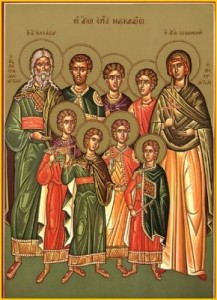Thoughts on Today’s Lessons for Sunday, Nov. 10, 2013.
We can date these events precisely, as history records King Darius the Great of Persia, pinning Haggai’s narrative to 520 BCE, about five centuries before Christ. Darius was a successor to King Cyrus, who had released the people from Babylonian exile and sent them back to Jerusalem. Haggai (pronounced “Hah-guy”), one of the 12 “minor prophets,” makes clear that the restoration of the city and the Temple wasn’t easy going. But he calls the people to hang on to their courage and faith: Zion’s wealth and grandeur will be restored.
Psalm: Psalm 145
The Psalms cover a broad range of hope, lament, petition and praise, a diverse anthology that seems appropriate for all the ways that God’s people approach the divine in worship and song. Note well that the Psalms culminate with praise. As we near the final songs – this is the 145th Psalm of 150 – we can almost hear resounding chords and choruses as the people raise their voices in awe at God’s wonder. “Great is the Lord, and greatly to be praised!”
Second Reading: 2 Thessalonians 2:1-5, 13-17
This second letter to the Greek community in Thessalonika probably came a generation after the first, perhaps around 100, and was probably written in Paul’s name by a later follower. Early Christians had expected the Second Coming very soon, but many were probably hoping for reassurance by this point, when Christians faced Roman persecution with no sign of Christ’s return. The meaning of “the lawless one” is lost to history, but we can rule out any notion that this prophesies an “anti-Christ” figure in our time.
Gospel: Luke 20:27-38
Jesus and his followers have arrived in Jerusalem now, and the temple authorities would like to find a way to turn Jesus over to the state for execution. Now some Sadducees, who don’t believe in resurrection, try to trip Jesus up with a trick question: When a man who had seven wives dies and goes to heaven, which will be his wife? It may seem that Jesus responds by declaring there is no marriage in heaven, but modern theologians caution against taking this reading beyond its immediate context in this tricky conversation: We can count on eternal life in God, and that’s what matters.

